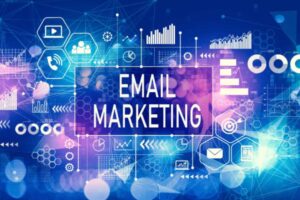Introduction:
The digital marketing landscape is constantly evolving, and artificial intelligence (AI) is at the forefront of this transformation. From automating routine tasks to delivering hyper-personalized experiences, AI has become a powerful tool for marketers to enhance their strategies and achieve better results. Whether you’re a small business or a large corporation, AI offers innovative solutions that can revolutionize your marketing approach. Here’s an in-depth look at how AI is reshaping digital marketing strategies.
- Personalization at Scale:
Personalization has become a cornerstone of effective marketing, but delivering personalized experiences to a large audience can be challenging. AI solves this problem by analyzing vast amounts of customer data, including browsing behavior, purchase history, demographics, and social media activity. It uses these insights to create tailored experiences for each user, such as personalized product recommendations, dynamic email content, and customized landing pages. - Enhanced Customer Insights:
Understanding your audience is crucial for any marketing strategy. AI-powered tools can process and analyze complex data sets far more efficiently than humans, uncovering patterns and trends that were previously hidden. These insights provide a deeper understanding of customer behavior, preferences, and pain points. For example, AI can segment your audience based on their behavior, such as frequent buyers, one-time purchasers, or inactive users. - Predictive Analytics for Better Decision-Making:
AI doesn’t just analyze past data; it can also predict future trends and customer actions. Predictive analytics leverages historical data to forecast outcomes, such as which products are likely to perform well, which customers are at risk of leaving, and which marketing channels will yield the best results. For instance, AI can predict which users are most likely to engage with a specific type of content or purchase a product. This allows businesses to prioritize their resources and focus on high-potential opportunities. Predictive analytics also helps in optimizing inventory management, pricing strategies, and marketing spend, enabling businesses to stay ahead of the competition and maximize their ROI. - Improved Content Creation:
Creating high-quality content consistently can be time-consuming and resource-intensive. AI simplifies this process by automating content creation while maintaining quality. AI tools like ChatGPT and Jasper can generate blog posts, social media captions, ad copy, and even video scripts based on predefined inputs. Moreover, AI can optimize content for search engines by suggesting relevant keywords, improving readability, and analyzing competitor content. This ensures that your content ranks higher on search engines and reaches a broader audience. - Automated Customer Support with Chatbots:
Customer service is a critical aspect of marketing, and AI-powered chatbots have revolutionized how businesses interact with their customers. Unlike traditional support systems that rely on human agents, AI chatbots provide instant, 24/7 support, handling a wide range of queries from basic FAQs to complex issues. These chatbots can be integrated across various platforms, including websites, social media, and messaging apps, offering a seamless customer experience. By automating routine tasks, businesses can reduce response times, improve customer satisfaction, and free up human agents to focus on more complex issues. - Smarter Ad Targeting:
Ad targeting is one of the most significant areas where AI has made an impact. Traditional advertising often involves a trial-and-error approach, but AI algorithms can analyze user data to identify the most relevant audiences for your ads. Platforms like Google Ads and Facebook Ads use AI to optimize ad delivery, ensuring that your message reaches the right people at the right time. AI doesn’t stop at targeting; it also optimizes campaign performance in real-time. By analyzing data such as click-through rates, conversions, and engagement levels, AI can adjust bids, refine audience segments, and recommend changes to ad creatives. - Dynamic Pricing Strategies:
Dynamic pricing, also known as personalized pricing, is another area where AI is making waves. By analyzing market trends, competitor pricing, and customer demand, AI can determine the optimal price for products in real-time. This ensures that businesses remain competitive while maximizing profits. For example, airlines and e-commerce platforms use dynamic pricing to adjust their rates based on factors like demand, seasonality, and user behavior. AI can also identify opportunities for personalized discounts, offering promotions to customers who are on the fence about purchasing, thus increasing sales and customer retention.
Conclusion:
Artificial intelligence is no longer a futuristic concept—it’s a practical tool that is reshaping digital marketing strategies today. By leveraging AI, businesses can deliver personalized experiences, gain deeper customer insights, and optimize their campaigns in real-time. Whether it’s through smarter ad targeting, automated customer support, or predictive analytics, AI offers endless possibilities for innovation and growth. At TechTail, we understand the transformative power of AI in digital marketing. Our team is dedicated to helping businesses harness AI-driven strategies to stay competitive and achieve their marketing goals. Ready to take your digital marketing to the next level? Let’s work together to make it happen.







